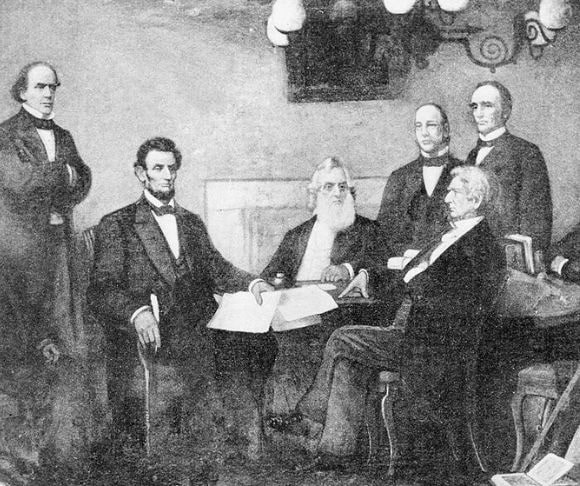
(Photo by ullstein bild/ullstein bild via Getty Images)
Is America moving toward civil war? It is a question with which certain left-leaning media organizations have become obsessed. Why do they think it necessary to shine a light on this idea and speculate about its likelihood? Do they genuinely fear such an outcome or are they merely attempting to create the impression that more and more Americans on the political right are inciting – and preparing for – a national armed conflict? Perhaps the reality is that growing defiance of the federal government disturbs their statist sensibilities. This is ironic, considering they were the cheerleaders of “the Resistance” just a few short years ago. Still, now that their party of choice is running the show, any anti-government sentiment is suddenly dangerous and subversive. Perhaps if they stopped for a moment, they might realize conservatives are not really plotting civil war; they are, rather, pining for a more robust observance of that quaint notion favored by most of the Founding Fathers, federalism.
On August 28, two of the most prominent left-wing newspapers, one from New York and the other from Washington, DC, dignified the subject on the front pages of their Sunday editions. Both dove into the topic of civil war, but neither could come up with compelling evidence that such conflict is on the horizon. As a matter of fact, research from one of the advocacy dailies revealed a distinct lack of statistical evidence that such a thing is brewing.
Writing a guest essay for The New York Times, author Sarah Vowell rambled about former President Donald Trump, Rep. Liz Cheney (R-WY), her neighbors in Montana, and a July survey out of UC Davis that suggests a significant number of Americans think civil war is coming. Vowell concludes that it’s mostly fantasy and that “We are stuck. With each other. Perpetually.”
So, Vowell’s essay tells us a whole lot of nothing, but its title – What’s With All The Fluff About a New Civil War, Anyway? – may have been sufficient to serve the editors’ purpose; to get “Civil War” out there and beat the drum of discontent.
Confusing States’ Rights and Civil War
Over in Washington – where democracy dies in darkness, some would say – the other paper went with, Is the United States headed for civil war? Senior Editor Marc Fisher, oddly, mixed in the very same UC Davis poll, rehashed Jan. 6, invoked the name of Donald Trump, and stirred the pot with some rantings from what sounded like an unhinged racist most people have never heard of, along with selective dashes of American history.
Some 40+ paragraphs later, Fisher concludes that a repeat of 1861 is nowhere in sight. He even quotes Oren Segal, from the Anti-Defamation League’s Center on Extremism, who says, “It’s not exactly kumbaya in this society. But we have been going through this for a long time now, and I don’t see people coming together in the more coherent organizing we saw prior to Jan. 6.” Fisher warned about “collapsed trust in institutions such as the police, news media, churches and government makes the country more vulnerable to internal attack,” and then neatly segues into the landmark Dobbs v. Jackson Supreme Court decision, leaving the reader to wonder if the abortion issue might serve as a sufficient catalyst for the discussion.

Fisher also quotes Stephen Marche, author of The Next Civil War: Dispatches From the American Future. Best known as a Canadian novelist, Marche’s foray into non-fiction is advertised in bold italics with the following: “The United States is coming to an end. The only question is how.” That pretty much tells the reader where he stands – and it is hardly coincidental that the aforementioned book was published on the first anniversary of the Jan. 6 Capitol “insurrection.” Marche posits, “you now have another situation like in 1860 where you have two legal statuses of people in different parts of the country, and it just can’t hold.” But this idea of “two legal statuses” existing in different regions of the country is nothing new. Every American is subject to two legal statuses.
On the one hand, there are those laws the United States Congress has the authority to pass, limited to what Article I, Section 8 of the Constitution permits, and, on the other, there are the laws passed by the states. And when the Supreme Court struck down the federal government’s over-reaching protection of abortion, that was simply federalism at work – not a revolutionary threat to federal power. In fact, as Liberty Nation Legal Affairs Editor Scott Cosenza points out, “It’s only when some states wished to exert their will over how things went in the other states that we got to civil war. Devolving power from the federal government to the states is an anti-civil war measure.”

(Photo by Stephen Maturen/Getty Images)
In his article, Fisher also points to the state of Texas threatening to defy the federal government over new gun laws. If such defiance is dangerous, Fisher might want to consider the number of Democrat-run states and cities that years ago declared themselves sanctuaries for illegal aliens in direct violation of federal immigration law. No civil wars began as a result. In any case, a state refusing to enforce a federal law that violates the Constitution is the entire point of federalism. Texas has its own gun laws, and the federal government has no authority to impose restrictions on firearms – much less force sovereign states to adopt those restrictions.
Both Vowell and Fisher admit that much of the civil war talk bounced around by certain right-wingers on social media – or perhaps by left-wing trolls attempting to stir unrest – is more fantasy than anything else. That said, it is worth considering that the people in leftist media circles clamoring about such a threat perhaps believe honestly that it is coming. If so, they want to ensure the blame for it is pinned squarely on conservatives – especially Trump supporters. But, as Victor Davis Hanson noted in an August 17 article for American Greatness, “Those who warn most of some mythical civil war are those most likely to incite one.”
Check out Whatfinger.com, the #1 Alternative to the Drudge


